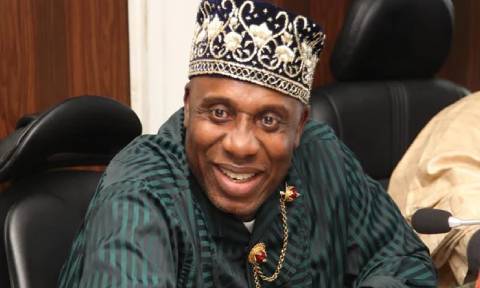
Fascinated about how the Nigerian movie industry- popularly known as Nollywood -has become the third best in the world with abundance of talents? Interestingly, with the fame comes with its vices. Chinyere Okoye looks at some of the actors and actresses who had been involved in drug scandals and related offences
There was a time in Nigeria when not much was known about narcotics, except perhaps, when it was meant to refer to the common neighbourhood grass known as Indian hemp. Nigerians were largely ignorant of the names and potency of the other drugs in the narcotic family. Today, Nigerians hear more about cocaine, heroine and other narcotics than they hear about common malaria drugs in the media. The image of Nigeria has suffered for the menace of hard drugs than from anything else. Apart from the image problem, hard drugs have the potential to destroy social life, particularly among the nation’s youth population. It is for the sake of protecting the country from the dangers of hard drugs that the National Drug Law Enforcement Agency (NDLEA) was established via Decree 48 of 1989.
“Over 90 per cent of drug suspects arrested at the airports were found to have ingested illicit drugs. Some female traffickers used their hairstyles and private parts in concealing drugs. The agency seized drugs concealed in false bottom of luggage, courier parcels, picture frames, computer components and even holy books. Others were concealed in shoe soles, chocolate packs, food stuff and car dashboards, just to mention a few.”
A Nollywood actress and single mother of two Hassanat Taiwo Akinwande, a.k.a Yetunde Wunmi was arrested in September by officials of the Nigerian National Drug Law Enforcement Agency, while trying to get on board a London-bound Virgin Atlantic flight from Lagos. After a few days in detention Hassanat, who is famous for her roles in Nigerian movies that preach morality, excreted 92 wraps of high-quality cocaine weighing in at 1.214 kg, according to the prosecution. She was sentenced to three years imprisonment or one million naira fine.
This follows the actress admission of guilt in the drug trafficking case filed against her by the NDLEA.
Uche Odoputa was also convicted and sentenced to eight months imprisonment for trafficking in illicit drugs two years ago. He regained his freedom on September 3, 2007 and immediately headed straight for the Living Faith Christian Ministry (Winners’ Chapel), Canaan Land, Ota, and Ogun State for special prayers. “Since my release, I’ve been at Canaan Land praying and fasting for God’s forgiveness. I will open up to the world and my fans at the appropriate time,” he said.
The tenets of rule of law, transparency and global best practices have remained our watch word. The National Drug Law Enforcement Agency (NDLEA) over the years has vigorously pursued its mandate through series of drug eradication efforts.
The agency is focused, proactive and poised to confront drug barons to a level of total incapacitation. Our records in the past few years confirm the fact that the momentum of drug control has been on the increase. The impact of drug among Nigerian youths has been a stigma of a moral bankrupt, decadent and wasted generation that must be revitalised and collectively salvaged in order to prevent the total degeneration and loss of our societal values and ideals. Majority of the Nigerian youths ignorantly depend on one form of drug or the other for their various daily activities like social, educational, political, moral and otherwise.
This social environment actually encouraged the exposure of categories of Nigerians to the hard drugs business. For instance, a controversial case involving one Comfort Udua was reported after she was arrested at the Aminu Kano International Airport. That incident was like an eye opener for other Nigerians who had similar business interests. Perhaps, it was the general absence of credibility in government that provided support for the illicit trade in hard drug. The case was traced to people in government who provide security support for their couriers. She was said to have “died” in detention, whereas, report had it that she was sighted outside of the country.
The cause of the “death” was kept secret, to the extent that Nigerians became convinced that she must be an agent of people very high up in government. However, the menace of illicit drugs had become too nauseating for government to sweep it under the carpet.
There are many factors that contribute to the influence of drug addiction among our youths, which are peer groups, parental background (broken home), and emotional stress among others. First, peer groups are a form of societal influence on the affected youths. For example, a friend can be greatly influenced to be a drug addict if allowed to interact with drug addicts – young and old. He can be tempted on one fateful day to join the bad wagon of drug addicts, thereby gradually ruining his career in life. Getting hooked to a particular drug is a gradual process that will reach a climax of dangerous drugs like cocaine, Indian hemp (marijuana), morphine, heroine, tobacco, ephedrine amongst others.
Some of these dangerous drugs are both represents and stimulants, making the users either to feel high or low since there is a common adage which says “Show me your friend and I will tell you who you are.” Our youth need to be fully re-oriented with respect to this social evil. For example, in our contemporary society, some groups of boys might be shy and afraid to “approach” or woo beautiful girl to their side, they might result to taking hard drugs that can “pull them” up and summon courage and talk to such girls. But must they subject themselves to this? Really, some boys even believe strongly in drinking alcoholic as their own crude method.
The sociological implications of drug among the Nigerian youths have been a major threat to the peaceful co-existence of all and sundry in the contemporary society, thereby destroying the socio-political dignity, personality and integrity of life.
Again, the parental background of a child can also affect the over-dependence rate on drugs among the affected youths. Due to various family problems like broken homes (divorces), polygamous family, abject poverty, cultural influence, parental neglect, lack of parental affection and responsibility. A father that is a drug addict may be greatly influenced and “carried away” by any of his children.
Most parents in Nigeria today in their bid to make ends meet – searching for greener pasture always abandon and neglect the proper welfare of children and expose them to the “unofficial” assistance of the so-called house-maids. This ugly incidence will psychologically depress such children thereby giving rise to child abuse, which is an offshoot of drug abuse.
Without mincing words, such youths end up in taking solace in some illicit hard drugs mentioned above for their survival in life. With this sad development, the society is being gradually and systematically ruined uncontrollably, thereby destroying the moral values of the Nigerian society via her youth.
Naturally, some groups of teenagers are emotionally stressed, but instead of them seeking for proper medical attention, they retire to self medication which is a conceptual relic of drug abuse, thereby using hard drugs for such corrections.
The various consequences of drug addiction are so devastating and very shameful to the extent that both the national and international organisations all over the world are also worried about the spread of this scourge among the Nigerian youths.



















